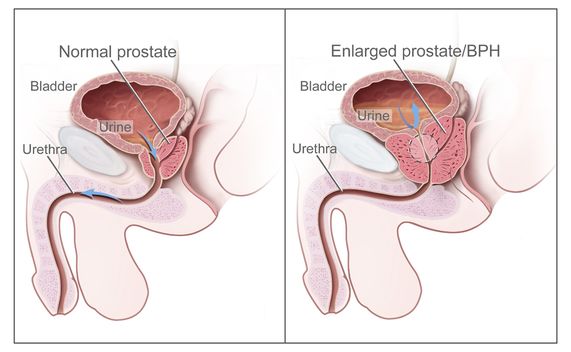benign prostatic hypertrophy
(beh-NINE prah-STA-tik hy-PER-troh-fee)
A benign (not cancer) condition in which the prostate gland is larger than normal. As the prostate gets bigger, it may press against the bladder and urethra, which can slow or block the flow of urine from the bladder. This can cause urinary symptoms, such as feeling a need to urinate often or right away, waking up many times during the night to urinate, trouble urinating, leaking urine, pain during urination or after ejaculation (the release of semen through the penis during orgasm), and blood in the urine. Benign prostatic hypertrophy does not increase a person’s risk of developing prostate cancer. However, if not treated, it can lead to a weak bladder, urinary retention, urinary tract infections, bladder stones, or bladder or kidney damage. Benign prostatic hypertrophy is most common in older men. Also called benign prostatic hyperplasia, BPH, and enlarged prostate.
